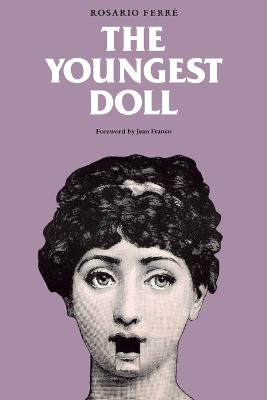Latin American Women Writers
1 total work
The upper-middle-class women in The Youngest Doll, mostly married to macho men, rebel against their doll-like existence or retreat into fantasy, those without money or the right skin color are even more oppressed. In terms of power and influence, these women stand in the same relation to men as Puerto Rico itself does to the United States, and Ferré stretches artistic boundaries in writing about their situation. The stories, moving from the realistic to the nightmarish, are deeply, felt, full of irony and black humor, often experimental in form. The imagery is striking: an architect dreams about a beautiful bridge that “would open and close its arches like alligators making love”; a Mercedes Benz “shines in the dark like a chromium rhinoceros.” One story, “The Sleeping Beauty,” is a collage of letters, announcements, and photo captions that allows chilling conclusions to be drawn from what is not written. The collection includes Ferré’s discussion of “When Women Love Men,” a story about a prostitute and a society lady who unite in order to survive, and one that illustrates the woman writer’s “art of dissembling anger through irony.” In closing, she considers how her experience as a Latin American woman with ties to the United States has brought to her writing a dual cultural perspective.
